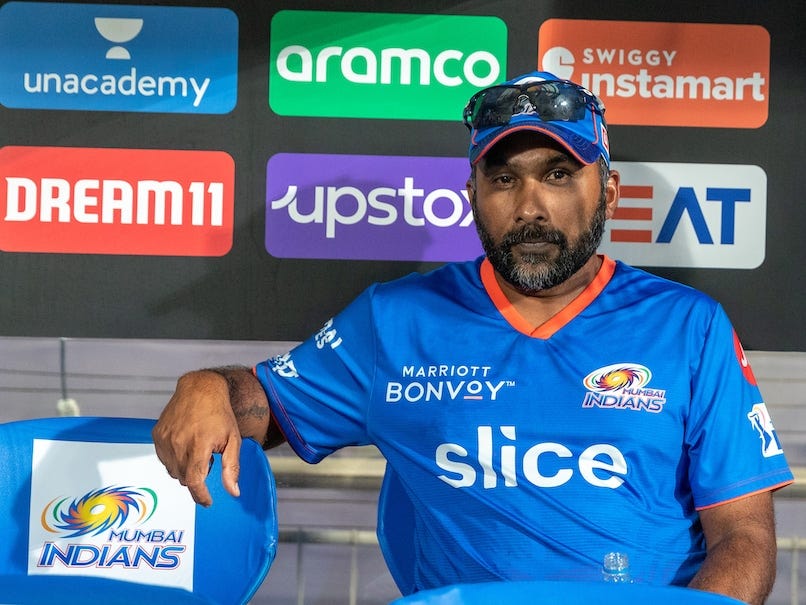Mahela Jayawardene, an icon in the realm of cricket, hails from Sri Lanka and is celebrated globally. His elegant batting style coupled with an astute cricketing intellect has cemented his place in history. His influence on Sri Lankan cricket, both on and off the field as captain, is truly remarkable. Universally, he is esteemed as one of the finest batsmen of his time.
This article delves into the illustrious career of Mahela Jayawardene. From his early days and rise to prominence, to his batting prowess and captaincy, we will explore the achievements and records that define his legacy. Join us as we celebrate a true cricketing legend and his lasting impact on the sport.
Early Life and Rise to Fame
Mahela Jayawardene was born in Colombo, Sri Lanka, on May 27, 1977. His passion for cricket ignited during his formative years. Demonstrating extraordinary skill in youth cricket, his debut for Sri Lanka in 1997 was highly anticipated. His refined stroke play, coupled with outstanding technique, immediately distinguished him as a versatile player across all formats of the game.
He captured international attention with a poised 86 against India during his initial Test series. Nevertheless, his performance in limited-overs cricket, particularly in One Day Internationals (ODIs), solidified his standing as one of the premier batsmen in the world.

His talent was evident early on, with many recognizing his potential to become a significant figure in cricket. This promise quickly translated into performance, marking the beginning of an extraordinary career.
Batting Mastery
Mahela Jayawardene’s batting was characterized by exceptional technique, unwavering composure, and remarkable adaptability across cricket formats. This right-handed batsman was equally adept at both defensive and aggressive play, enabling him to construct extended innings that frequently steered Sri Lanka towards crucial victories.

Jayawardene amassed over 12,000 runs in ODIs and exceeded 11,800 runs in Tests. His proficiency in scoring substantial centuries in Test cricket, especially against formidable opponents, established him as an invaluable asset in the game’s lengthiest format.
His most celebrated moment occurred in the 2007 ICC Cricket World Cup, where he achieved a memorable 115 against New Zealand in the semi-final. Jayawardene’s batting was both graceful and potent. His ability to seamlessly transition between formats without compromising his skill was remarkable. His precise shot selection, along with a balanced approach of aggression and defense, made him one of the most respected batsmen globally.
Leadership and Captaincy
Mahela Jayawardene’s leadership capabilities were equally as notable. He served as captain for Sri Lanka across all formats for a considerable duration, demonstrating calmness and a keen understanding of cricket strategy. During his tenure, Sri Lanka advanced to the finals of both the 2007 and 2011 ICC Cricket World Cups. Despite losses to Australia in 2007 and India in 2011, his leadership was highly commended.

His tactical insight on the field, particularly in setting field positions and rotating bowlers in limited-overs matches, was remarkable. Jayawardene’s capacity to maintain composure under pressure and make critical decisions in challenging scenarios earned him the respect of both his teammates and adversaries.
Achievements and Records
Mahela Jayawardene’s career is marked by impressive records and achievements. His key accomplishments include:
- Scoring over 10,000 runs in both Tests and ODIs.
- Holding the record for the highest individual score in a World Cup final (103 not out against India in the 2011 World Cup).
- Becoming the first Sri Lankan to score 10,000 runs in both Test and ODI formats.
- Being recognized for performing exceptionally well under pressure, often delivering crucial innings to secure victories for Sri Lanka.
Jayawardene is also one of the few cricketers to have scored a triple century in Test cricket, achieving this milestone against South Africa in 2006. His score of 374 remains the highest individual score by a Sri Lankan in Test matches.
The End of an Era
Mahela Jayawardene concluded his Test cricket career in 2014 after an impressive 17 years, with his final match against Pakistan. This departure marked a poignant moment for Sri Lankan cricket. He continued to participate in limited-overs cricket, retiring from ODIs in 2015 and T20s in 2016.
Post-retirement, Jayawardene has remained actively involved in cricket as a mentor, coach, and commentator, imparting his extensive knowledge to upcoming cricketers. His off-field contributions have reinforced his status as an ambassador of the sport.
Legacy

Mahela Jayawardene’s legacy transcends his statistics and accomplishments. He embodies grace, talent, and professionalism. Known for his exemplary sportsmanship and respect for cricket, he serves as a role model for aspiring cricketers globally. His elegant batting, leadership skills, and profound understanding of the game guarantee his lasting presence in cricketing history.
As a true representative of Sri Lankan cricket, Mahela Jayawardene’s influence on the sport will resonate for many years. He stands not only as one of Sri Lanka’s greatest cricketers but also as one of the most esteemed figures in the sport worldwide.
Conclusion
Mahela Jayawardene’s journey from a young talent in Colombo to a world-renowned cricketing legend is truly inspiring. His remarkable batting skills, combined with his astute leadership, have left an indelible mark on Sri Lankan and international cricket. His contributions extend beyond the field, as he continues to mentor and inspire future generations of cricketers.
Jayawardene’s legacy is one of excellence, sportsmanship, and dedication to the sport. He has set a high standard for cricketers worldwide, and his name will forever be synonymous with the elegance and brilliance of Sri Lankan cricket. His story is a testament to the power of hard work, talent, and unwavering commitment to the game.
In conclusion, Mahela Jayawardene’s impact on cricket is profound and enduring. He remains a role model for aspiring athletes and a beloved figure among cricket fans worldwide. His achievements and contributions to the sport will continue to inspire and shape the future of cricket for years to come.
